
Now 23, Sheku Kanneh-Mason first drew widespread attention by winning BBC Young Musician of the Year in 2016. In 2018 he played at the wedding of Prince Harry and Megan Markle, and in 2020 he was awarded an MBE for services to music. As well as solo albums, he has made recordings with his talented siblings, whose extraordinary story has been told in several TV documentaries. Sheku’s solo album, Song, comes out on Decca in September, and on 10 September he plays at the Last Night of the Proms.
I started playing the cello at six and ELGAR’s Cello Concerto was the first classical music that I fell in love with and felt I understood. Of course, my feelings towards the piece have changed as I’ve got older – performing and recording it has taken my relationship with the work to another level of connection. It’s shaped who I am as a musician. When I was younger, I listened to the Jacqueline du Pré recording constantly and I suppose I tried to copy it, but her way of playing and her interpretation are so individual that I learnt more from her approach to the music than from specific things she does with the piece.
We also grew up listening to recordings of Beethoven’s Violin Concerto with Itzhak Perlman, and Rachmaninov’s Second Piano Concerto with Vladimir Ashkenazy. My brother Braimah plays the violin, my sister Isata plays the piano, and I play the cello, so I’m sure it’s no coincidence that this was the music we were exposed to!
Esta historia es de la edición September 2022 de BBC Music Magazine.
Comience su prueba gratuita de Magzter GOLD de 7 días para acceder a miles de historias premium seleccionadas y a más de 9,000 revistas y periódicos.
Ya eres suscriptor ? Conectar
Esta historia es de la edición September 2022 de BBC Music Magazine.
Comience su prueba gratuita de Magzter GOLD de 7 días para acceder a miles de historias premium seleccionadas y a más de 9,000 revistas y periódicos.
Ya eres suscriptor? Conectar
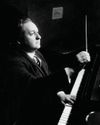
Look back in anguish
Despite Korngold's denials, there is much to suggest that his Symphony in F sharp is a grim depiction of the dark days of Nazism, argues Jessica Duchen
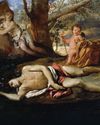
Come again?
If something is worth hearing once it's worth hearing again, explains Rebecca Franks, who charts a history of the use of echoes in music
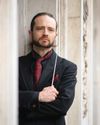
THE BBC MUSIC MAGAZINE INTERVIEW
Music by women and composers of colour is not a separate set of pieces from the ones we know
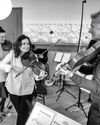
A brilliant melting pot of discoverable works
Erik Levi enjoys Patricia Kopatchinskaja and friends' eloquent performances of lesser-known works by exiled composers
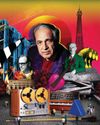
Pierre Boulez
Tom Stewart celebrates a composer, conductor and musical iconoclast for whom breaking from tradition was not an option but a must
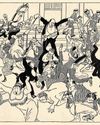
Vienna's cacophonous concert ends to the sound of slapping
‘Fighting at a Schoenberg concert.
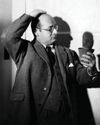
Molto humoroso
Cartoonist and broadcaster Gerard Hoffnung lampooned the world of classical music with splendid affection and wit, writes Andrew Green

There and back again
With retrospectives on album and in concert this month, Oscar-winning composer Howard Shore reflects on his years in Middle-earth and tells Michael Beek why he has a lot to thank the LPO for...
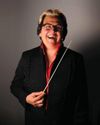
THE MAGNIFICENT SEVEN Pick a theme... and name your seven favourite examples
Composer-conductor Odaline de la Martinez prizes tempo, swing and bounce in her top rhythmic works
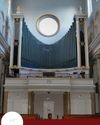
Crystal clear with plenty of punch
The great is, they say, the enemy of the good, and that is certainly the case with David Sanger’s interpretation of Vierne’s Organ Symphony No. 1, which stands head and shoulders above a strong field of alternative versions.